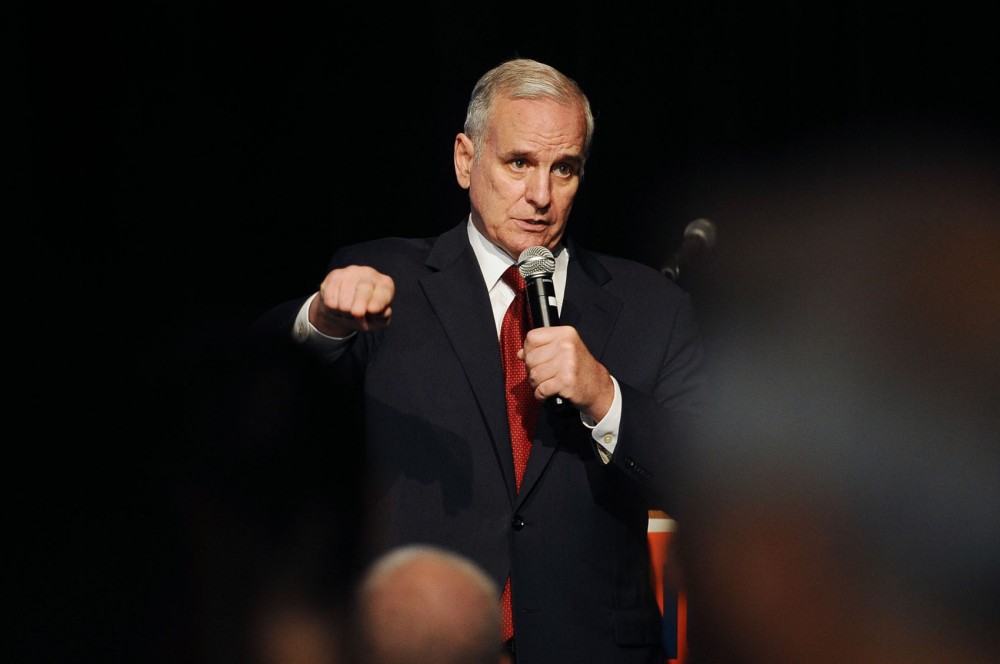The Democratic-Farmer-Labor Party reclaimed the state Legislature on Tuesday in an election that leaves Minnesota with a completely DFL-controlled state government for the first time in 20 years.
After two years of a GOP-controlled House and Senate, the new single-party domination will smooth the way for Gov. Mark Dayton to pursue his agenda.
“I was asked many times what would happen with a DFL Legislature and a DFL governor, and I said ‘progress,’” said Dayton at a press conference Wednesday.
After Tuesday’s election, the majority of states have Republican-controlled legislatures and only four states have split control, according to the National Conference of State Legislatures.
Democrats gained full control of four new states while Republicans gained three, and New Hampshire shifted from Republican-controlled to split-control.
While most legislatures in the U.S. are dominated by single parties, having a governor of the same party is less common.
The Minnesota Legislature has frequently been split between parties over the past 40 years.
Until 2010, the GOP had not controlled the Minnesota Senate since 1971, but House control has switched more frequently between the two.
In a press conference, Majority Leader Rep. Matt Dean, R-Dellwood, and Speaker of the House Kurt Zellers, R-Maple Grove, attributed the GOP defeat in part to heavy campaign spending and negative messaging by the DFLers.
They would not say whether the failed marriage and voter ID amendments
affected the election, but Sen. Tom Bakk, DFL-Virginia, said he thinks they helped boost DFL-voter turnout and sway independents.
The newly elected Legislature will have to determine a budget and likely will address taxes, the bonding bill and University of Minnesota funding.
“The most important thing of course will be the state budget,” said David Schultz, a law professor at Hamline University, who spoke to the Minnesota Daily prior to election results.
Dayton and the two current minority leaders, Rep. Paul Thissen and Bakk, declined to outline specific policy plans, saying issues will require deliberation among the caucuses.
Regarding taxes, Thissen said, “What we want is a fair, simpler tax system.”
When asked about legalizing gay marriage, Bakk said policy ideas should be put on the “back shelf” for now, with the budget taking priority.
Rep. Phyllis Kahn, DFL-Minneapolis, who represents the University of Minnesota area, said there’s no reason why different committees can’t work on the two things simultaneously.
Kahn agreed that balancing the budget takes first priority, however. Among the most important issues, she also listed infrastructure and reform of the constitutional amendment process.
In the Wednesday press conferences, the DFLers emphasized overcoming partisan biases and getting to work.
“It is time to leave the campaign behind; the election is over,” Bakk said. “Let’s all roll up our sleeves and do what’s good for our state.”








